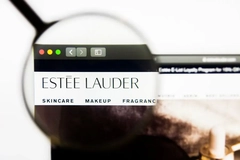Report finds consumers scrutinize greenwashing and demand organic ingredients

A report from the US-based National Sanitation Foundation (NSF) has revealed that 74% of consumers consider organic ingredients important when choosing personal care products. The NSF commissioned TGM Research to survey 1,000 Americans, finding a growing demand for transparency and cleaner formulations in the personal care sector.
The study highlights that health-conscious consumers scrutinize cosmetic ingredients and want assurance that their products are free from harmful chemicals and unnecessary additives.
The report points to persistent concerns about greenwashing, with voluntary product labels often failing to provide the trust consumers seek.
“Consumers are more conscious than ever about what goes into their skin care, cosmetics, and hygiene products. Despite this demand, misleading voluntary labels continue to erode trust, making third-party certification a crucial factor in the purchasing decision,” says David Trosin, senior director of NSF’s Global Certification team.

Health drives purchases
The demand for organic personal care product formulation is largely driven by consumers’ health and safety concerns. According to NSF’s report, 88% of respondents believe there are physical benefits to purchasing organic beauty and hygiene products. The top motivation listed is better personal health, cited by 34%.
Beyond health, consumers link organic products to a perception of purity and quality. According to the report, 17% of respondents listed “less processed and fewer chemicals” as a key factor in their purchasing decisions, tying with “higher quality” as the second-most important reason.
Environmental considerations also play a role, with 14% of respondents choosing organic personal care products due to their perceived environmental benefits. This highlights a growing awareness of sustainability within the beauty industry.
.jpg) The commonness of greenwashing has left many buyers confused about which products actually meet higher safety and sustainability standards.Interestingly, younger consumers (ages 18–29) are the most committed to organic beauty, with 86% prioritizing organic ingredients. This commitment declines with age, dropping to 59% among those ages 60–75.
The commonness of greenwashing has left many buyers confused about which products actually meet higher safety and sustainability standards.Interestingly, younger consumers (ages 18–29) are the most committed to organic beauty, with 86% prioritizing organic ingredients. This commitment declines with age, dropping to 59% among those ages 60–75.
The generational gap suggests that the organic movement will gain more momentum as younger consumers with strong preferences for transparency and wellness become prominent market drivers.
Labels that lack
The report also shows that consumers remain highly skeptical of voluntary label claims. Voluntary label claims are marketing terms on product packaging that are not regulated or independently verified. Common examples include “natural,” “eco-friendly,” “non-toxic,” and “green” — these terms have no standardized definition, allowing brands to use them freely.
The lack of verification can mislead consumers and contribute to greenwashing — making products seem safer or more environmentally sustainable than they really are. The NSF report found that 9% of consumers fully trust these labels, highlighting the need for third-party certifications to ensure credibility.
Among older consumers, trust in voluntary labels is even lower — 3% of those ages 60–75 said they fully believe the claims on personal care packaging. The commonness of greenwashing has left many buyers confused about which products actually meet higher safety and sustainability standards.
The report suggests brands can rebuild trust by prioritizing transparency in ingredients and labeling by obtaining independent third-party certifications to aid the message of credibility and strengthen consumer confidence.
Cash for credibility
The NSF report also highlights that 45% of consumers are willing to pay more for products with credible organic certification. This willingness is stronger among younger consumers, with 62% of those ages 18–29 willing to spend more for credibility.
According to the survey, certification marks are crucial in purchasing decisions. Half of the consumers surveyed said they place high value on certification stamps such as USDA Organic or NSF’s “Contains Organic Ingredients” seals and see them as a sign of trust and transparency. According to NSF’s report, 88% of respondents believe there are physical benefits to purchasing organic beauty and hygiene products.
According to NSF’s report, 88% of respondents believe there are physical benefits to purchasing organic beauty and hygiene products.
Additionally, 65% of consumers want clear ingredient lists that allow them to identify and avoid potentially harmful substances. It further reinforces the need for personal care brands to prioritize straightforward, honest labeling.
Regulatory pressure
The landscape for personal care regulations is shifting, with new government policies reinforcing the need for higher standards. In December 2025, the FDA’s Modernization of Cosmetics Regulation Act (MoCRA) will introduce mandatory safety verification, facility registration, and stricter labeling requirements.
For brands, this means compliance will no longer be optional. Companies that fail to meet the new regulatory framework risk facing legal and reputational consequences. The upcoming changes make third-party certification even more valuable, providing an added layer of assurance for regulators and consumers.
To address the challenge of organic certification in personal care, NSF introduced the NSF/ANSI 305 standard in 2009.
The standard requires products to contain at least 70% organic content by weight and undergo a strict certification process that includes technical reviews, on-site inspections, and strict criteria for non-organic ingredients. They must also be GMO-free and meet transparency standards.
To help brands navigate MoCRA’s requirements, NSF has developed Guideline 527 to align personal care with upcoming transparency and safety expectations. NSF suggests brands that achieve NSF/ANSI 305 certification will be better positioned to meet the evolving regulatory landscape.













